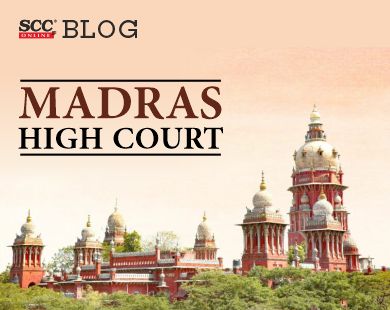Madras High Court: In a writ petition filed to call for the records of the Shariat Council, pertaining to the impugned Khula Certificate and quash the same as illegal, C. Saravanan, J. held that while it is open for a Muslim woman to exercise her inalienable rights to dissolve the marriage by Khula recognised under the Muslim Personal Law (Shariat) Application Act, 1937 (‘the Act, 1937’) by approaching a Family Court, it cannot be before a self-declared body consisting of few members of Jamath. Thus, the impugned Khula Certificate issued by the Shariat Council was quashed. Further, it directed the petitioner/wife, and the husband to approach the Tamil Nadu Legal Services Authority or a Family Court to resolve their dispute
In the case at hand, the petitioner was married to the respondent\ wife, however, he left the matrimonial home in 2016. The wife appears to have decided to dissolve the marriage under the Muslim Personal Law (‘Shariat’) by way of “Khula”.
The wife approached the Shariat Council to declare the dissolution of marriage under the Muslim Personal Law by way of “Khula”. The Shariat Council has granted Khula Certificate to the wife against which, the present writ petition has been filed.
The questions to be answered are:
• Whether this writ petition is maintainable against the Shariat Council, which is a private body?
The Court said that prima facie, it is not a State within a meaning of Article 12 of the Constitution of India. Therefore, it is not amenable to jurisdiction under Article 226 of the Constitution. However, the scope of power under Article 226 has been widened by several decisions of the Supreme Court, wherein private body exercising the power as that of the public body has been made amenable to the jurisdiction under Article 226 of the Constitution.
It was also said that the Shariat Council is a society registered under the provisions of the Tamil Nadu Societies Registration Act, 1975. It exercises overwhelming power over the members of the Jamath. It seems to give an impression as that of a public body. Therefore, the Court was inclined to exercise the jurisdiction under Article 226 of the Constitution of India against the Shariat Council. Thus, it was held that the writ petition as against the Shariat Council is maintainable.
• Whether the married Muslim women can obtain Khula Certificate from any persons like the Shariat Council a registered society under the Tamil Nadu Societies Registration Act, 1975?
The Court said that a Muslim woman has an inalienable right to dissolve her marriage as recognised under the provisions of the Section 2 of the Act, 1937, as it starts with a non-obstante clause, making it clear that notwithstanding any customs or usage to the contrary, in all questions relating to the instances specified therein, the rule of decision in cases where the parties are Muslims shall be the Muslim Personal Law (Shariat). However, in Tamil Nadu, there is a slight amendment to this Section vide Muslim Personal Law (Shariat) application (Tamil Nadu Amendment) Act, 1949.
The Court said that Section 5 of the Act, 1937 had conferred the jurisdiction with the District Judge to dissolve a marriage on any ground recognised by the Shariat from a petition made by a Muslim married woman. However, Section 5 of the above Act was repealed with the enactment of the Dissolution of Muslim Marriages Act, 1939 with effect from 17-03-1939. Further, Section 2(i) to (viii) of the said Act contains grounds for dissolution of marriage on fault basis. Section 2(ix) of the Act deals with residuary clause, under which, a married Muslim woman is entitled to obtain a decree for dissolution of marriage on any other grounds which is recognised as valid for the dissolution of marriages under Muslim law. Thus, “Khula” which is recognised under the personal law is now statutorily recognised under the provisions of the Dissolution of Muslim Marriages Act, 1939. (‘DMM Act’)
Further, it said that while exercising the power to grant leave to a married Muslim woman under Section 2 of the DMM Act, 1939, the Courts are not exercising any extra-judicial power to grant divorce. The Courts will be governed by the Act, 1937 which is supposed to be veritable code recognised under the religious text governing the Act, 1937.
The Court said that the Courts are empowered under Section 7(1)(b) of the Family Courts Act, 1984 read with Section 2 of the DMM Act, 1939 and Section 2 of the Shariat to pass a decree to dissolve a marriage. The private bodies such as the Shariat Council, cannot pronounce or certify dissolution of marriage by Khula. They are not Courts or Arbitrators of disputes.
Thus, it was held that it is open for a Muslim woman to exercise her inalienable rights to dissolve the marriage by Khula recognised under the Act, 1937 by approaching a Family Court and it cannot be before a self-declared body consisting of few members of Jamath.
[Mohammed Rafi v. State of Tamil Nadu, 2023 SCC OnLine Mad 471, decided on 11-01-2023]
Judgment by: Justice C. Saravanan
Advocates who appeared in this case :
For Petitioner: Advocate R.Abdul Mubeen;
For Respondents: Special Government Pleader S. Ravikumar.
*Apoorva Goel, Editorial Assistant has reported this brief.







